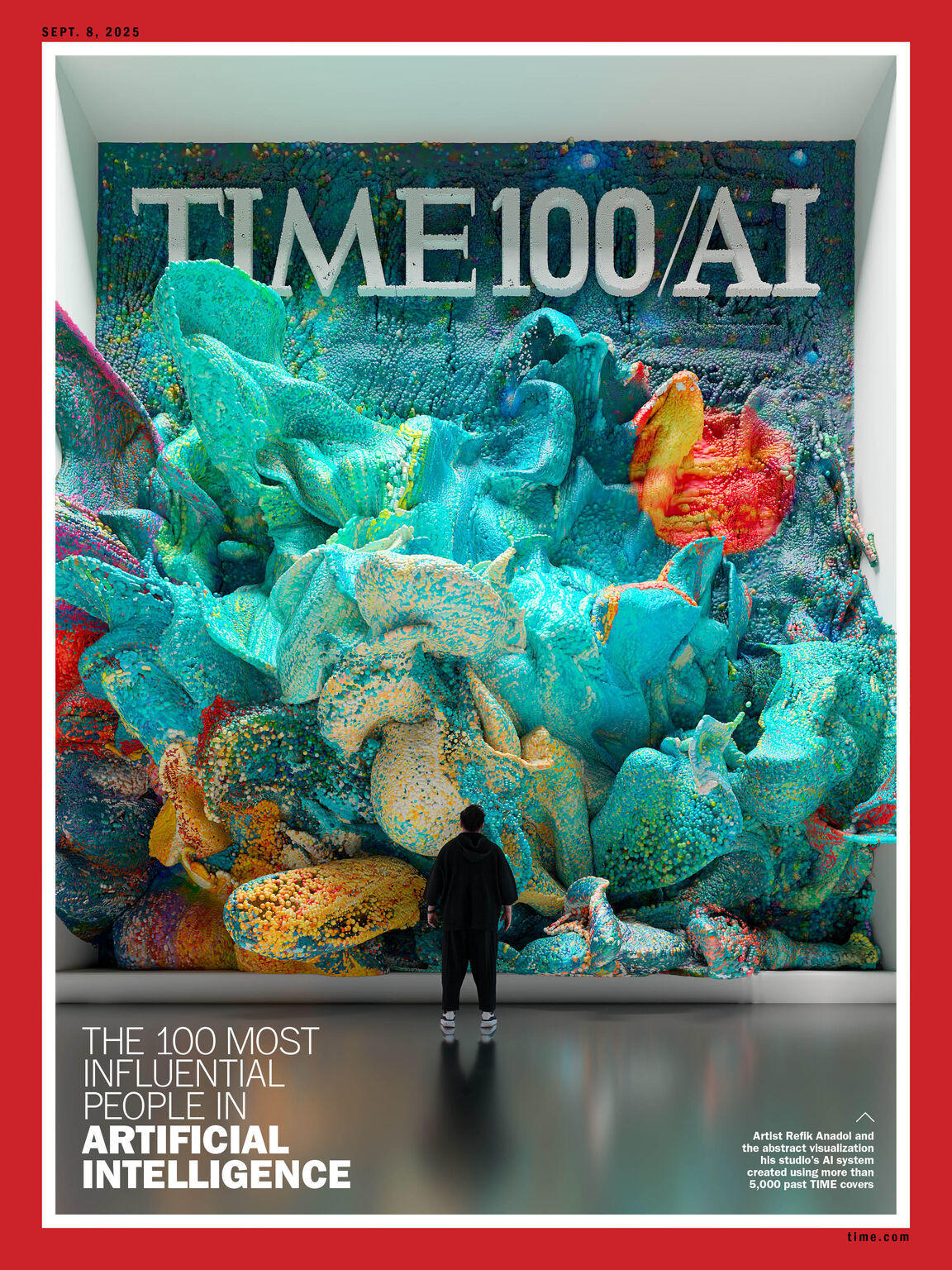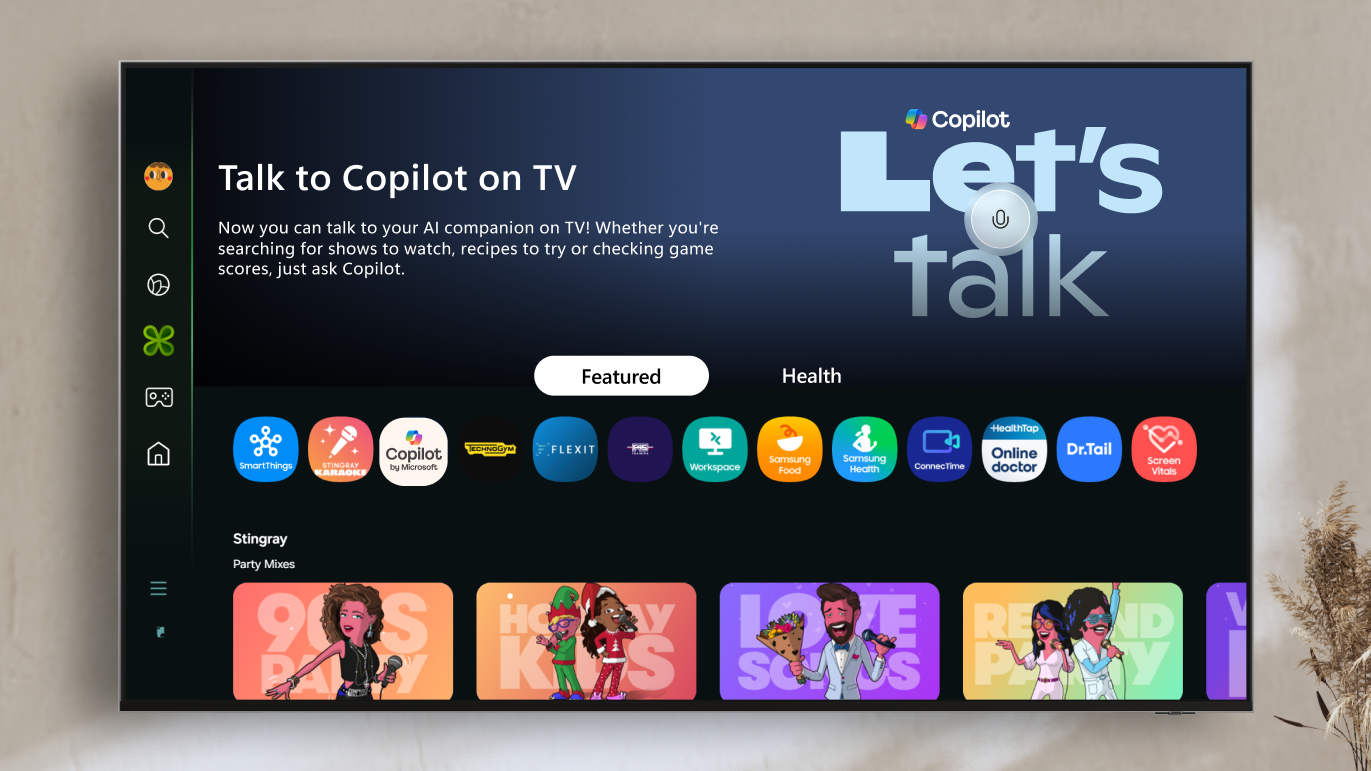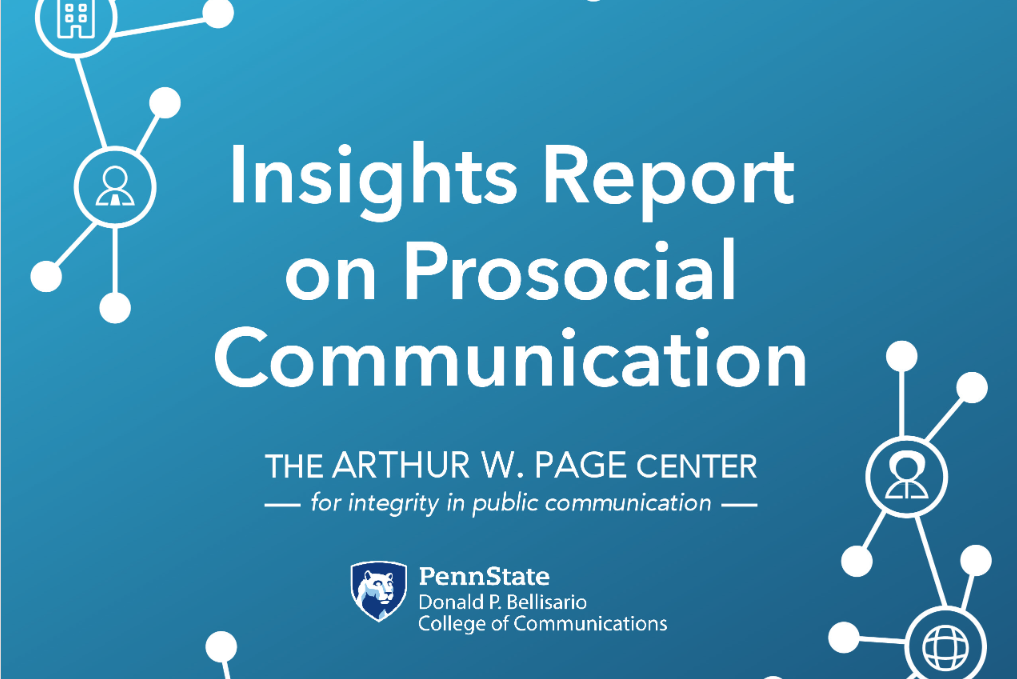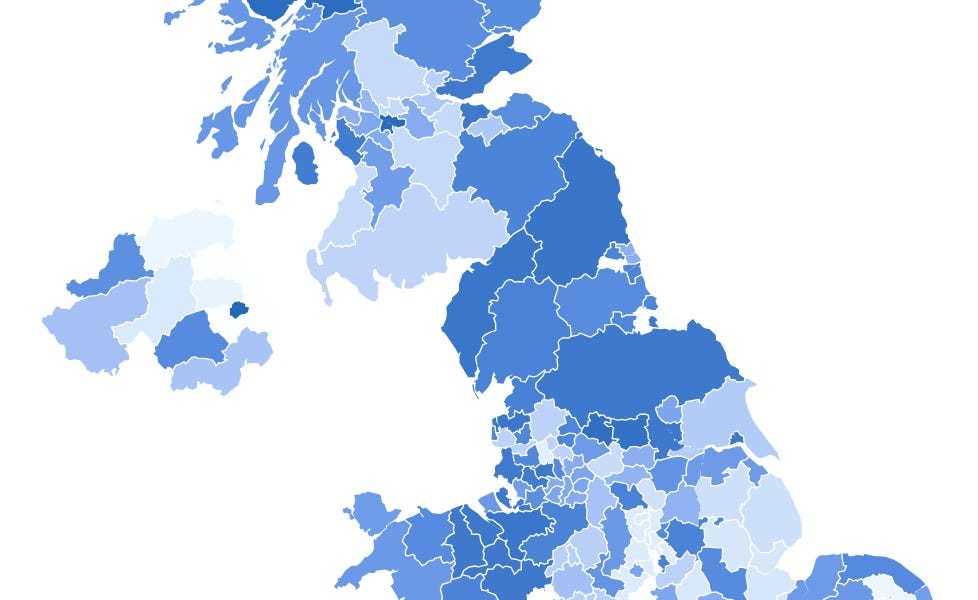 Welcome
Welcome
Why Gen Z aren't your answer to AI
Big news. I've secured the exclusive first interview with Kanishka Narayan MP, the new Parliamentary Under Secretary of State for AI and Digital Government to ask him how his appointment would impact the UK government's AI policy. Sort of. Take a look and let me know what you think.
In this issue of PR Futurist we also look at TIME magazine's list of the 100 most influential people in AI (or not!). And we have new research showing why Gen Z aren't your answer to AI and a top Google executive calling out replacing junior staff with AI as the dumbest idea ever.
If you're feeling exhausted and confused by the pace of AI then you're not alone as even Bill Gates says he's surprised at the speed AI is moving. Although it does mean you've got to get over your confusion (we can help!) and actually start doing stuff about AI.
We also have the CEO of the Financial Times calling for a "NATO for news" to combat the threat of AI and big tech. Meanwhile the Kingdom of Saudi Arabia in responding to western bias in AI models by creating its own AI chat bot with "Islamic values".
And if all this is too much you could relax by chatting to Copilot on the latest Samsung TVs.
 News
News

EXCLUSIVE: First interview with new AI minister
I've just interviewed Kanishka Narayan MP, the new Parliamentary Under Secretary of State for AI and Digital Government to ask him how his appointment would impact the UK government's AI policy.
Or rather I've interviewed his digital clone using Nostrada.ai. Take a look and let me know what you think.
AI in Comms and Marketing: What’s Working Now? PRCA webinar
Later this month I'm doing a PRCA webinar with Madeleine Weightman and Ben Mitchell of The Work Crowd.
We will look at how AI is changing the way we work and asking how is it really being used inside comms and marketing teams?
Join us on 24th September for 30 minutes of straight-talking insight with me and Ben Mitchell, Head of Interim at The Work Crowd, who is an ex-journalist and former Head of Comms.
We’ll share real examples from in-house leaders already using AI, covering:
- What’s delivering results and what’s just hype
- The tools teams are adopting right now
- The challenges of making AI work in real-world workflows
Fast-paced, practical and packed with advice you can use straight away.
 AI
AI

TIME's TIME100/AI list is exciting... and horrifying when you read it
I was excited when the CEO of TIME CEO announced that it was revealing "the highly anticipated TIME100AI list, recognizing the 100 most influential people in artificial intelligence." Until I read it.
To describe it as garbage would be complimentary. The most notable missing name is Mustafa Suleyman. How can the founder of one of the world's most important AI companies who is now leading AI at one of the world's biggest technology companies possibly not be on the list?
And WTF is the Pope doing on it? The Pope of all people!
Just two of the most obvious influential industry commentators missing are Azeem Azhar and Ethan Mollick.
And what's with all the Americans? Just a handful of names from China, UK and in fact most of the world.
Peter Kyle, the UK government's Secretary of State Science, Innovation and Technology makes the list, but not Matt Clifford, author of its AI Opportunities Action Plan. How does Alex Bores, just an assembly member of a US state possibly make the list?
The most astounding thing about the list is the number of people I've never heard of... who when I click through to their biographies I wonder why I'd need to. Today, TIME reveals the highly anticipated TIME100AI list, recognizing the 100 most influential people in artificial intelligence.
Replacing junior staff with AI Is 'dumbest' idea says senior Google exec
Many chief financial officers look at AI and see pound or dollar signs as they imagine how they can cut costs and replace junior staff with AI. I'd argue they are wrong and junior staff are essential and can't be replaced by AI. But if you don't want to listen to my humble opinion and analysis you might take heed of Amazon cloud chief Matt Garman who says replacing junior staff with AI is short-sighted, calling it "one of the dumbest things" he's ever heard.
Bill Gates says even he is surprised at the speed AI is moving
If you're still thinking about AI then you might want to think about how fast you should be moving if even Bill Gates is surprised at the speed AI is moving. He says Gen Z should learn to be productive with AI now, as experts can’t predict when it’ll replace their jobs.
Too many people make the assumption that Gen Z will miraculously be AI natives leaving the oldies behind. It's a foolish assumption as many Gen Z are stridently anti-AI with a mix of valid criticisms and myths. Inevitably they are concerned about future jobs, but sustainability is often at the top of the list why they are reluctant to use AI.
FT chief says publishers need a "NATO for news"
We should all agree that protecting the integrity news and journalism is critical to a healthy society and economy. Yet its economic model is under massive threat from AI, which is ironic considering AI needs quality news content. The chief executive of the Financial Times sees the situation as so dire he suggested teaming up with rival publishers to create a "NATO for news" alliance.
This informative article looks at AI's impact on search visits to news and publishing websites with comment from both the publishing industry and Google.

Saudi Arabia launches Islamic AI
Saudi Arabia has launched its own AI chatbot, Humain, that complies with “Islamic values”. At the moment it's only available in the kingdom, but its developers say it has been designed for more than 400 million Arabic speakers and two billion Muslims worldwide. Humain claims it can switch seamlessly between Arabic and English.
Humain is owned by the Saudi sovereign wealth fund so is a good example of a nation understanding the importance of sovereign AI (it's built on Allam 34B an Arabic large language model) and not relying on foreign AI models it can't influence or regulate. It enables the kingdom to shape the future of AI.
A frequent criticism of AI large language models is their inherent bias. That's because they are trained largely on English-language data sets chosen by 'tech bros' on the west coast of the USA. The same 'tech bros' build in guard rails to prevent 'unacceptable' use. But whose unacceptable use. Whose truth?
I suspect many of the most vocal liberal critics of bias don't mean they want to see an AI ingrained with 'values' based on Saudi law about women, LGBTQ+ and other issues.
Humain is not the only example of AI starting to become more global. European AI company Mistral AI bot 'Le Chat' is designed to perform better in Africa and the Middle East. Mistral has created partnerships in countries like Angola.
One lesson from this is AI is no longer universal. Multinational companies and organisations need to take care implementing AI to understand that centrally imposed global AI models won't always be the best local solution.

Microsoft brings Copilot AI to Samsung TVs and monitors
A sign of how ubiquitous AI is becoming is Microsoft's announcement that it is launching voice-powered AI Copilot on select Samsung TVs and monitors to transforming the biggest screen in your home into "your most personal and helpful companion—and it’s free to use." I'm intrigued as to how this will work as a TV is a family or household device so to be really useful it will need to be able to distinguish between people so interactions are related to the right accounts.
 Corporate affairs
Corporate affairs

New insights report on 'prosocial communication'
It's disappointing that the work of the Arthur W. Page Center isn't better known as it publishes some excellent reports. The Arthur W. Page Centre’s 2025 Insights Report has 12 case studies exploring "prosocial communication".
Even if you don't read the full report it's worth reading the first section which identifies the top 10 insights mapped against the Page Principles. The em dashes below are in the original copy, which wasn't written by AI and are a good example of why they aren't a reliable 'tell' to detect AI writing.
#1 Tell the truth.
1) Authentic communication builds trust.
2) Communicate with empathy—focus on resilience and respect.
#2 Prove it with action.
3) People trust organizations that make real changes, not just donations.
4) Leadership in action inspires prosocial employee behaviors.
#3 Listen to stakeholders.
5) Stakeholder feedback should shape strategy.
#4 Manage for tomorrow.
6) Invest in long-term partnerships, not one-off campaigns.
#5. Conduct public relations as if the whole enterprise depends on it.
7) Communicate values like they matter—because they do.
#6 Realise an enterprise’s true character is expressed by its people.
8) Empower local teams to drive impact.
9) Micro-influencers within organizations build trust.
#7 Remain calm, patient and good-humored.
10) In times of crisis, lead with empathy and composure
If you don't know who Arthur W Page was then you're missing out. If Edward Bernays was the 'father of public relations' then Arthur W. Page was the 'father of corporate affairs'.
 Research and reports
Research and reports

Gen Z professionals are nearly two times more likely to exaggerate or lie about their AI skills at work, compared to Gen X
In a "No **** Sherlock" moment LinkedIn's latest research shows the most trusted source for professionals isn’t AI or search engines — it’s their professional network. You might think LinkedIn would say that wouldn't it, but that doesn't stop it from being true.
The research also reveals more than half (51%) of professionals say learning AI feels like another job, and there’s been an 82% increase in people posting on LinkedIn about feeling overwhelmed and navigating change this year. The mounting pressure to upskill in AI is fueling insecurity among professionals at work — with a third (33%) admitting they feel embarrassed by how little they understand it, and 35% saying they feel nervous talking about AI at work for fear of sounding uninformed.
Navigating change is impacting confidence and wellbeing. More than four in 10 (41%) professionals say the current pace of AI change is taking a toll on their wellbeing.
To reinforce my point that it's a mistake to assume Gen Z will be better at AI than their older peers the research reveals they feel the most pressure. Gen Z professionals are nearly two times more likely to exaggerate or lie about their AI skills at work, compared to Gen X.
This is why we constantly remind clients that implementing AI is a much about cultural change as technology. It's not enough just to provide AI tools, it must be accompanied with proper planning, training and support.

A map of local news in the UK
This might be a bit niche, but it's fascinating. This new Substack is about mapping local news in the UK. It's written to share PhD research. Take a look and see what you think.
MIT research on corporate AI failures and successes
New MIT research reveals why many AI initiatives fall flat. Internal AI builds succeed only one third of the time, compared to 67% success for external tools and partnerships. Tools like ChatGPT excel for individuals, but not for businesses as they don't adapt to workflows. Shadow AI (unsanctioned tools) remains a big problem.
Help shape the future of PR in management
You can help shape the future of the role of public relations in management and strategy by contributing to an important research project. Please take 10 minutes to complete this survey to develop a deeper understanding of public relations and management.
It's part of a broader PhD research by Stephen Waddington. He is looking to gauge the views of UK-based in-house practitioners in public relations, communications and corporate affairs.
Thank you.
